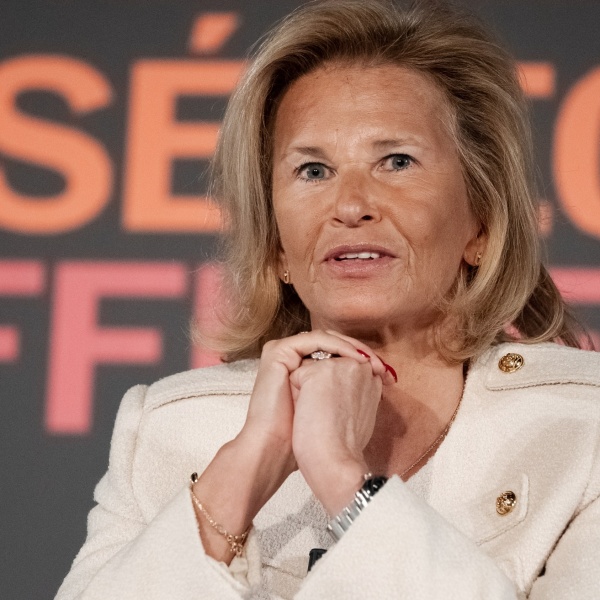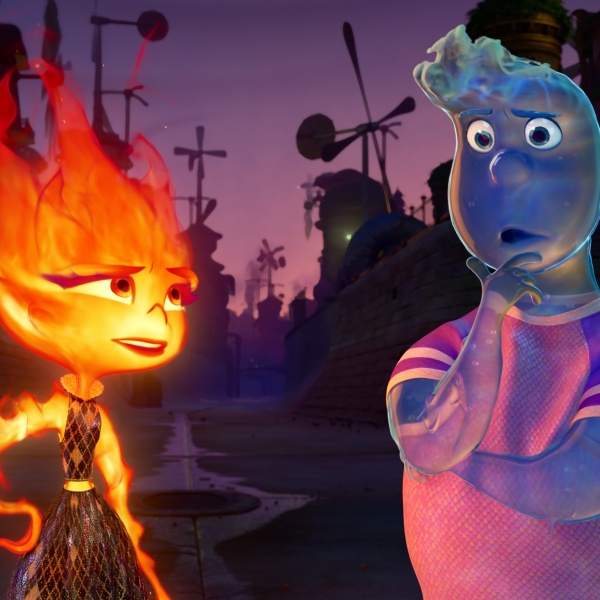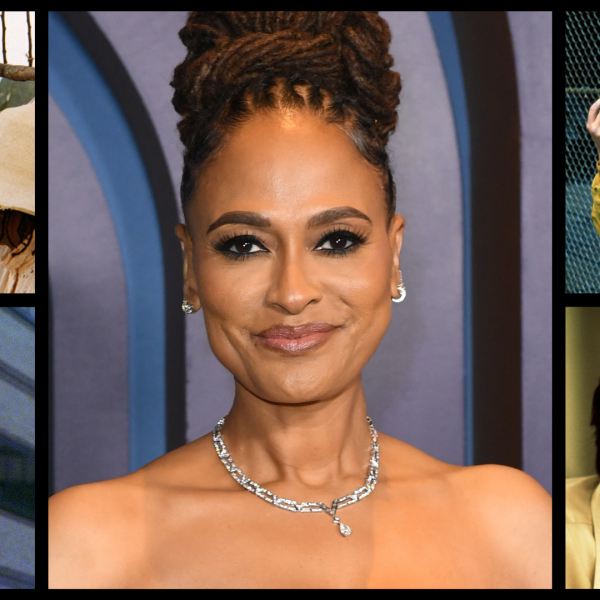Editor’s note: This review was originally published at the 2023 Toronto International Film Festival. Apple releases the film in select theaters on Friday, October 27, with an AppleTV+ streaming release to follow on Friday, November 3.
Christos Nikou’s “Fingernails” effectively pathologizes the unspoken secret at the heart of the romantic comedy genre: Falling in love is the easiest thing in the world, but staying in love is something you have to work on every day if you want it to last that long.
It’s a secret epitomized (and half-heartedly acknowledged) by the likes of “Love, Actually,” a sprawling matrix of warm and fuzzy crushes in which the only married couple is mired in an unresolvable crisis. Everybody gets verklempt at a grand gesture or a mad dash to the airport in the third act, but what happens after the credits roll? What happens when Tom Hanks and Meg Ryan get used to each other and start having circular arguments about emotional labor? That’s another genre altogether.
Set in a drab and slightly retro-futuristic world of tomorrow that’s so light on digital technology it might be mistaken for yesterday if not for some of the pop culture references sprinkled throughout (an early mention of the Spice Girls helps audiences get their bearings), “Fingernails” begins a few years after the social fabric of life on Earth has been transformed by the invention of a test that scientifically determines whether two people are in love. The fallout has been profound and predictable: Most couples that fail the test lose faith in their relationship and break up, while those who pass are so comfortable in the quasi-dystopian promise of their mutual belonging that they start taking each other for granted and quickly sink into an unromantic stasis sustained by the “fact” of their feelings for each other. In other words, it’s just like marriage, but with more external validation.
The divorce rate has plummeted, but happiness appears to have plummeted along with it. That disconnect is personified by and within an unemployed woman named Anna (Jessie Buckley), who’s introduced sitting in her car and singing along to a radio station that broadcasts nothing but broken-hearted dedications from people to their confirmed no-matches; it’s effective world-building, and also compelling evidence that no movie can be all bad if it opens with Jessie Buckley belting out “Total Eclipse of the Heart” at the top of her lungs.
Casting definitely isn’t the reason why Nikou’s smirkingly wistful but frustratingly obvious “Fingernails” struggles to stir any feelings of passion. That’s even with co-stars Jeremy Allen White as Anna’s wet blanket of a partner, Ryan, and Riz Ahmed as the handsome stranger who works at the institute that administers the love test, and takes Anna under his wing when she secretly accepts a new job there. She and Amir are both drawn there because of a mutual fascination with the mysteries of love, a fascination that stems from their private — but obviously shared — desire to square the diagnosed contentment of their relationships with the unspoken longing of their souls. “Sometimes being in love is lonelier than being alone,” Anna sighs late in the movie, long after she’s begun to question who it is she’s actually in love with.
It’s a clever — if airless — premise for a stone-faced comedy about the fluidity of human feelings, which have proven to be an imperfect fit for the inflexibility of social institutions. Nikou tries to have as much dry fun as he can without ever smiling wide enough to show any teeth. The couples under Anna and Amir’s tutelage at the institute are essentially cramming to pass the love test, and “Fingernails” musters a few laughs from the absurdity of two people trying to convince a giant microwave with an ’80s-era digital interface that they belong together in the hopes that they might believe it themselves.
There’s a sniff test that requires someone to smell out their partner in a crowded room, and a skydiving exercise that seeks to galvanize romance through adrenaline. Amir wants to start a controlled fire in a crowded movie theater playing a Hugh Grant Film Festival in order to give people the opportunity to save their partners, but that plan seems too ambitious, so he and Anna settle for leading French karaoke sessions instead (Yazoo’s “Only You” gets a workout). It’s all cute enough, but Nikou’s script, co-written by Stavros Raptis and Sam Steiner, only earns real laughs when it tests the boundaries of its own absurdism, like it does when Anna tries to create a Pavlovian response to Ryan’s absence by shocking herself when he leaves the house.
Of course, the more extreme things get the more familiar they seem, as “Fingernails” — like Nikou’s 2020 debut “Apples” before it, a similarly clinical and seriocomic look at the foibles of memory — doesn’t have a strong enough identity of its own to shine outside of Yorgos Lanthimos’ shadow. It’s as if Nikou himself is struggling to reconcile the security of sticking to what he knows with the pull of trying something new (in this case, a postmodern English-language deconstruction of a traditionally American form), and the scenario that he devises never quite feels like the right design for the ideas that he wants to express through it.
The love test itself involves violently detaching one fingernail from each subject and then putting the two bits in a weird science gizmo that determines whether one, both, or neither of the people in love (if the couple is only a 50% match, the test can’t determine which half is in love), which means that people who’ve submitted themselves to the test walk around with a tell-tale bandage on their hands. The damage that does to their swiping fingers is meant to be a commentary on the inauthenticity of dating apps, but that appears to reflect a misunderstanding in how dating apps work: The love they might spark isn’t any less than just because it wasn’t forged by an adorable meet-cute. Also, why can’t people just save themselves the agony and keep reusing the same nail every time they want to test? Are non-monogamous relationships scientifically invalid? And how might having children affect the results of the test or their importance to the people who take it? It’s best not to ask too many questions of a movie that doesn’t aspire to answer any of its own.
Buckley, White, and Ahmed are as strong as they could possibly be in a film that strands them in a sterile comic wasteland somewhere between Sirkian melodrama and Lanthimos-like monotone, but literalizing the most painful side effects of monogamous relationships does precious little to meaningfully reframe them, and “Fingernails” peters out fast once the issues it raises all come to the surface. There’s nowhere for the movie to go once it establishes that the safety love offers can also be the source of its undoing.
One of the best things about being in love is that it allows a relationship to survive the fact that most people don’t feel in love all the time, but “Fingernails,” like so many of the rom-coms that it uses for cannon fodder, is more interested in the first blush of new attraction than it is in the hard work of staying with someone, or the value of trying. Nikou has a golden opportunity to put those two competing forces in conversation with each other, but instead they hardly share a word. And so a potentially compelling movie about the need to listen to our feelings resolves into a deeply frustrating one that refuses to engage with them.
Grade: C
“Fingernails” screened at the 2023 Toronto International Film Festival. Apple will release it in select theaters on Friday, October 27, and it will be available to stream on Apple TV+ starting Friday, November 3.




